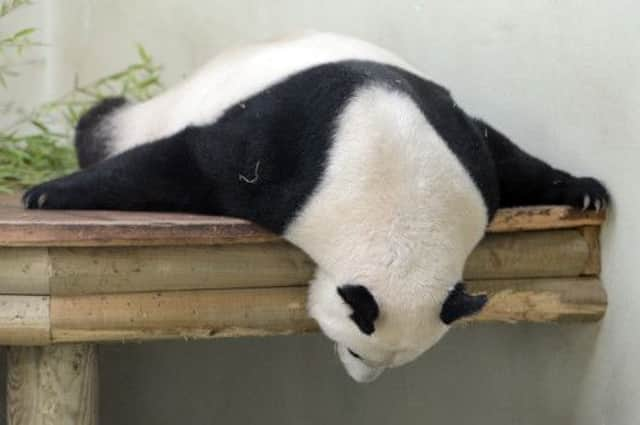‘Panda cub would cement Scotland-China relationship’


The arrival of Tian Tian and Yang Guang saw the term “Panda Diplomacy” enter into common usage, to describe the political wheeling and dealing that surrounded their arrival. The deal between the UK and China was signed at the same time as agreements on £2.6 billion of trade and investment, including support for the oil refinery at Grangemouth.
The inclusion of a panda “loan” was seen as a symbol of the two countries’ willingness to work with each other.
Advertisement
Hide AdAdvertisement
Hide AdHenry Nicholls, author of The Way Of The Panda, which examines the role of the animal through history, said the addition of a cub would help to cement this relationship.
“I’m sure it would strengthen links between China and Scotland,” he said. “While there’s not a blacklisting, there’s a certain amount of pressure on a zoo with adult pandas to produce cubs, and if you don’t, it doesn’t look great. So it will at least allay tensions for the time being. If there had been a year or two without breeding, those relations could start to fray, so it will keep everything on board; it will keep the Chinese happy that the zoo is doing everything right and producing cubs, and Edinburgh will be naturally delighted.”
China will, as it does with the existing pair of adults, retain ownership of any cub. If there is a cub, the zoo will have to pay a further fee to China of an estimated $500,000 (£320,000) – twice that if there are twins – which is usually paid only once they are put on display due to baby pandas’ high mortality rate.